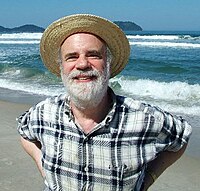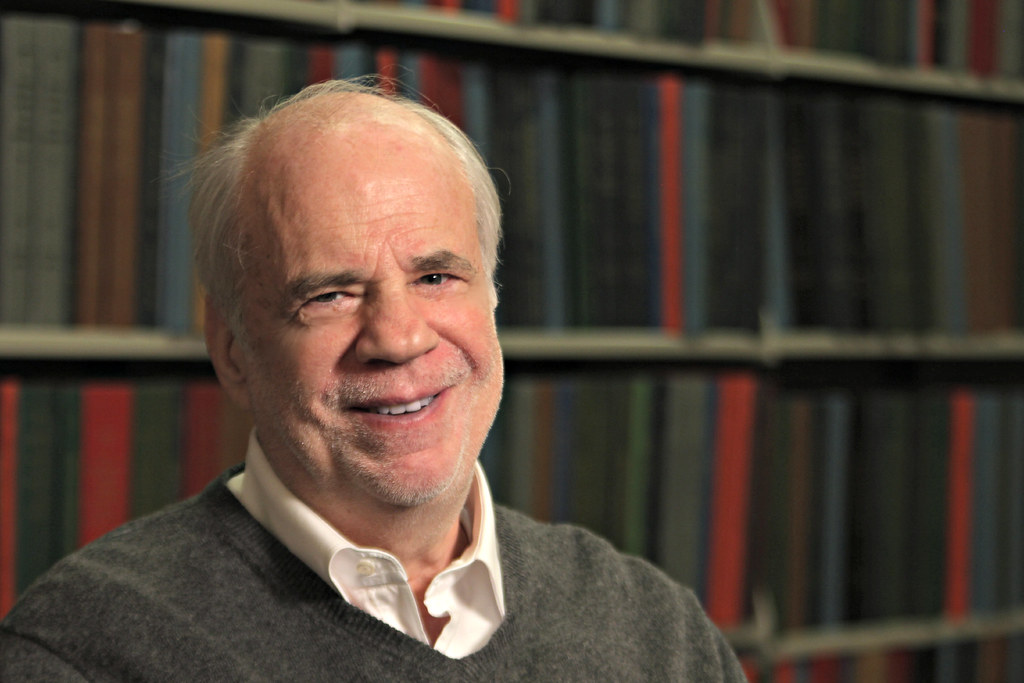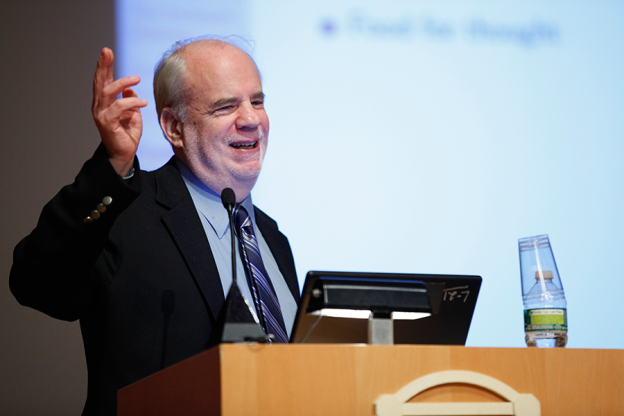Saul Kripke
Saul Aaron Kripke ( born November 13, 1940 in Bay Shore, Long Iceland, New York ) is an American philosopher and logician. He wrote pioneering contributions to logic, in particular in the field of modal logic, and the philosophy of language, in particular for the name theory.
Life
The philosopher, son of author Dorothy and Rabbi Myer Kripke of, studied mathematics at Harvard University. In 1958 - at the age of eighteen years - Kripke published a work on modal logic under the title A Completeness Theorem in Modal Logic. It was followed by further basic investigations. From 1964 to 1966 Kripke taught at Princeton University and from 1966 to 1968 at Harvard University. After that he was appointed to the Rockefeller University in New York, where he taught philosophy until 1976. In 1977, Kripke took over the McCosh Professor of Philosophy at Princeton University. Kripke is professor of philosophy at the CUNY Graduate Center.
Work
Kripke has been able to influence the modern modal logic fundamentally with its model-theoretic investigations. Matthias Schirn, a philosopher at the University of Munich, writes:
His first works published Saul Kripke in some essays that he already began as a teenager. In his three early 1970, held at Princeton and published under the title Naming and Necessity lectures, he developed a new theory of proper names. While Frege and Russell still expected it to proper names have meaning and significance, are for Kripke proper names " rigid designation expressions " ( rigid designators ). You have only one meaning (reference); just so they can call in all possible worlds one and the same object.
He is also known for his contribution to the development of formal theories to avoid the liar paradox.
Kripke has published only a few works since the late 80s. In a special issue of the journal Mind (October 2005) a new essay by Kripke ( Russell's Notion of Scope ) has been released, which - as well as other texts Kripke - based on the tape recording of a lecture. He rejects a strictly naturalistic worldview and materialism.
In 1982, Kripke put Wittgenstein on Rules and Private Language before a much-discussed interpretation of the work of Ludwig Wittgenstein, whose faithfulness to the text is indeed controversial, but which has great influence on the further discussion of Wittgenstein's philosophy. This specific development of Wittgenstein's position is referred to in analytic philosophy frequently with the pun " Kripkenstein ".
Awards
- 2001: Shock Prize for Logic and Philosophy
Publication (selection)
- Identity and Necessity. In: M. K. Munitz (ed.): Identity and individuation. New York 1971
- Naming and Necessity. In: Gilbert Harman and Donald Davidson (ed.): Semantics of Natural Language. Reidel, Dordrecht, Boston 1972 Monograph: Naming and Necessity. Blackwell, Oxford, 1980 ISBN 0-631-12801-8
- German edition: Name and necessity. Translated by Ursula Wolf. Suhrkamp, Frankfurt am Main, 1981 ( paperback edition 1993 ISBN 3-518-28656-0 )
- German edition: Wittgenstein on Rules and Private Language. An elementary representation. Suhrkamp, Frankfurt 1987 ISBN 3-518-29383-4









